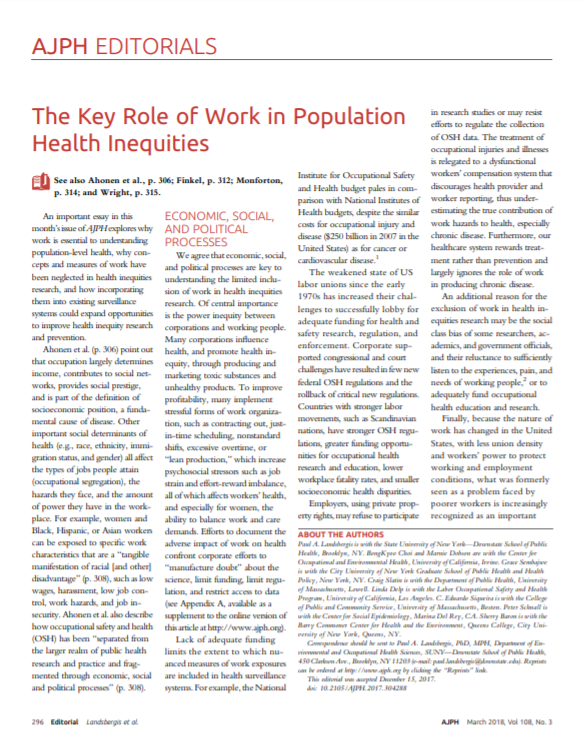The Key Role of Work in Population Health Inequities
Paul A. Landsbergis, BongKyoo Choi, Marnie Dobson, Grace Sembajwe, Craig Slatin, Linda Delp, Eduardo Siqueira, Peter Schnall and Sherry Baron
February 7, 2018
Labor and Occupational Safety, Publications, PaperSummary
"An important essay in this month’s issue of AJPH explores why work is essential to understanding population-level health, why concepts and measures of work have been neglected in health inequities research, and how incorporating them into existing surveillance systems could expand opportunities to improve health inequity research and prevention.
Ahonen et al. (p. 306) point out that occupation largely determines income, contributes to social networks, provides social prestige, and is part of the definition of socioeconomic position, a fundamental cause of disease. Other important social determinants of health (e.g., race, ethnicity, immigration status, and gender) all affect the types of jobs people attain (occupational segregation), the hazards they face, and the amount of power they have in the workplace. For example, women and Black, Hispanic, or Asian workers can be exposed to specific work characteristics that are a “tangible manifestation of racial [and other] disadvantage” (p. 308), such as low wages, harassment, low job control, work hazards, and job insecurity. Ahonen et al. also describe how occupational safety and health (OSH) has been “separated from the larger realm of public health research and practice and fragmented through economic, social and political processes” (p. 308)."


